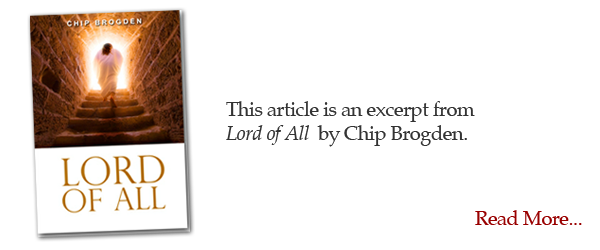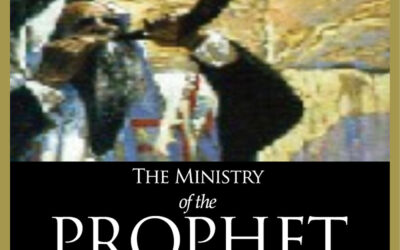“He must increase, but I must decrease” (John 3:30).
There are two Universal Spiritual Principles found in John 3:30 that express two very fundamental truths. First, that Christ must increase. This is a principle that most Christians can agree with. Are there any Christians who do not desire more of the Lord? Are there any believers who do not long for a greater expression and revelation of Christ – in their personal walk, as well as in the world around them? It is easy to align ourselves with this principle and pray in agreement with God’s Will – that Christ would be increased, and that the knowledge of Him would continue to grow and expand.
What is more difficult to affirm is the decrease of Self. Yet this principle is as powerful and as sure as the first. With more of Christ, there is less of me. With more of me, there is less of Him. And so, in order to cooperate with the first principle, we must overcome the “but” that stands between the two. “He must increase, but…” Something hinders. What gets it the way? What prevents the increase of Christ? It is me – or more accurately, the “I”, or the “Self” keeps getting in the way. And so, “I must decrease.”
The Disciple’s Journey
The Self-Life resists the Christ-Life. The Holy Spirit seeks to increase Christ, while the human spirit seeks to increase Self. We can have either one, but we cannot have both. As Christ is increased, Self is decreased. As Self is increased, Christ is decreased.
We begin our journey through life in a self-centered existence instead of a Christ-centered existence. This is why we must be “born again.” To be born again is to interrupt the self-centered pattern of our lives and open us up to the possibility of taking a different route and living a different life – a life that is Christ-centered instead of Self-centered. Until this happens, it is impossible to love God and love our neighbor. These two great commands are impossible to those who maintain a healthy connection to their Self-Life. Loving others is impossible for ones who mostly love themselves. This is the way of the world.
The way of a disciple of Jesus is a different way. It is a way that cuts at the heart of self-love by making it possible for us to rise above Self-centeredness through Christ-centeredness. Jesus describes it as a difficult, narrow way that few find. Why is it so difficult? Because it strikes to the very core of who and what we are. Even our very desire to follow Jesus can be self-centered. Of course, we want to serve God; but we also hope to get a little something for ourselves. Many people are drawn to the Lord with mixed motivations. For example, the promise of a home in heaven is very appealing, as is avoiding the fires of hell. But the Self-life is revealed in these subtle expressions that often appear spiritual and religious.
To follow Jesus for nothing other than the love of Jesus is the way of the disciple. It is true that many follow Him imperfectly, and do so for many different reasons that they cannot fully explain or understand. Fortunately for us, Jesus does not demand sinless perfection from the ones who follow Him. His disciples make many mistakes and they often stumble and fall. Nor does Jesus require that we be spiritually mature and perfectly free from our Self-Life before He accepts us as disciples. Dealing with the Self-Life is part of His discipleship program. The very act of following Him begins a process that, if followed all the way to the end, results in what I call being reduced to Christ.
What does this mean? It means that when I began to follow the Lord, I may have had all kinds of motivations for doing so, and many of those motivations were self-serving and self-centered. My very existence was rooted and strengthened by my Self-Life. But as I follow Him, and as He increases, more and more I find my self-centered ways being stripped away. I find the power of Christ increasing within me, and I also find the power of Self is decreasing. With this process working simultaneously to increase Christ and decrease me, I find my motives are becoming more and more singular. I am no longer following Jesus for what I hope to get out of it. Even my “mansion in heaven” does not seem so important anymore. My many needs I find are not as urgent as they once were. My many questions are not as essential as I once thought they were. I have fewer questions, and so I require fewer answers. Where I used to be troubled and vexed and concerned and stressed over “many things” it is becoming easier to focus on the “one thing” that is needed. Christ is increasing, and everything else is decreasing. My life, my purpose, my focus, my very existence is being condensed from many paths in pursuit of many things so that I am becoming more and more narrowly focused upon one thing. Paul expresses it perfectly: “It is no longer I who live, but Christ Who lives in me” (Gal. 2:20).













